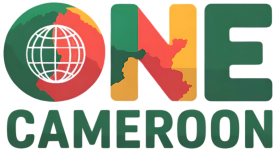Across Cameroonian cities, a wave of youth-driven entrepreneurship is redefining economic possibilities. Faced with limited formal employment opportunities and a burgeoning youth population—over 60% under age 25—young Cameroonians are launching startups in tech, creative industries, agriculture, and renewable energy. Supported by incubators, accelerators, and impact investors, these ventures tackle local challenges while generating jobs and fostering innovation ecosystems.
Douala and Yaoundé have emerged as primary hubs for entrepreneurial activity. Workstation (Yaoundé) and ActivSpaces (Douala) serve as co-working spaces and incubators, offering high-speed internet, mentorship programs, and networking events. Startups such as Gifted Mom (Yaoundé)—a digital health platform sending pregnancy tips via SMS to rural mothers—garnered support from Y Combinator and raised significant seed funding. Similarly, TradeMark Africa (Douala) developed a mobile payment solution enabling informal traders to conduct cashless transactions through USSD codes—broadening financial inclusion.
Agritech startups leverage Cameroon’s agricultural base. AgriTech Cameroon (Bafoussam) created an SMS-based information system providing farmers weather forecasts, market prices, and agronomic advice in local languages. Their platform integrates real-time data from meteorological stations and extension services. DripTech Cameroon (Maroua) designs low-cost solar-powered drip-irrigation kits for dry-land farmers—reducing water usage by up to 60%, increasing yields, and stabilizing incomes. These agritech solutions often partner with banks to offer microloans for purchasing equipment, facilitated by mobile money payments.
Creative industries—fashion, film, music, and crafts—thrive among youth. The “Made in Cameroon Fashion Week,” inaugurated in 2019, showcases emerging designers such as M’rogue and Mavellous, who produce sustainable lines using locally sourced cotton and recycled materials. Partnerships with Southeast Asian textile mills enable production of higher-quality fabrics customized with Cameroonian motifs. On the music front, artists distribute tracks digitally via platforms like Boomplay, Spotify, and Apple Music, promoting genres such as Afro-fusion and Afro-trap. Music producer studios in Douala offer recording equipment and mixing services, nurturing talents such as Tzy Panchak and Salatiel.
Technology startups address urban challenges. Douala’s Garbage ENGO (based on rubik’s name) built a mobile application connecting users to nearby waste collection services. Users schedule pickups of recyclables—plastic, paper, and metals—earning credits redeemable for airtime or grocery vouchers. Meanwhile, Green Cab (Yaoundé) is a ride-hailing service focusing on motorcycle taxis (“benskin”) that integrates electronic helmets with wifi hotspots and GPS tracking—enhancing passenger safety and connectivity.
Fintech is a hot sector. YUP (a digital wallet app) offers e-money services—bill payments, peer-to-peer transfers—targeting the unbanked population. The startup obtained a microfinance license from BEAC (Central Bank of Central African States) to issue mobile loans based on user transaction histories. In Douala’s Kotto neighborhood, Shujimoto (a real estate platform) allows landlords to post rental listings, enabling tenants to review sites virtually using 360° images—addressing transparency issues in the housing market.
Social enterprise models address pressing social issues. Les Orpailleurs (Yaoundé) employs waste pickers to sort and recycle electronic waste—recovering valuable metals and refurbishing electronics for low-income schools. Proceeds fund community development projects in neighborhoods like Bépanda and Makepe. The startup also partnered with local vocational schools to train youth in e-waste management, soldering, and electronics repair—promoting a circular economy.
Education technology (EdTech) solutions enable remote learning. Classroom Cameroon devised an interactive tablet loaded with offline educational resources—video lectures, quizzes, and e-books—tailored to Cameroonian curricula. Deployed in boarding schools lacking reliable internet, these tablets help teachers supplement lessons and monitor student progress. Additionally, UniTech (Yaoundé) provides online short courses—web development, graphic design, digital marketing—enabling flexible upskilling for professionals and students.
Renewable energy startups tackle energy access gaps. Philonomoe Technologies (Douala) designs solar-powered lanterns and battery packs sold on credit via mobile money. Customers pay in small installments over months—once fully paid, the devices belong to them. ElectroSolar Cameroon (Garoua) installs micro-grid systems in villages, charging households monthly. These systems power LED lighting, refrigeration for fish smokehouses, and mobile phone charging—improving living standards and supporting local commerce.
Women entrepreneurs drive growth in beauty and wellness sectors. Brands like “Africakala” (Yaoundé) produce shea butter-based cosmetics—body lotions, soaps, and hair care products—sourcing raw materials from cooperatives in the Extreme North Region. These cooperatives, comprising mostly women, harvest shea nuts during the rainy season, process butter using traditional mortar-and-pestle methods, and sell bulk volumes back to the brand. Africakala packages products in eco-friendly containers adorned with Cameroonian proverbs—positioning them for regional exports to Nigeria and Equatorial Guinea.
Access to finance remains a hurdle for many startups. Microfinance institutions like Advans Cameroon provide loans up to $10,000 without requiring collateral—enabling early-stage companies to invest in equipment and inventory. Impact investors such as JUMO and Village Capital occasionally organize pitch competitions—offering bridging grants of $5,000–$15,000 to winners. However, securing Series A or B funding from international VCs remains challenging; founders often travel to Lagos or Nairobi to tap into more mature ecosystems.
Government support has improved. In 2024, the Ministry of Small and Medium-Sized Enterprises (MINPMEESA) launched the “Entreprendre au Cameroun” portal—a one-stop digital platform for business registration, tax filings, and regulatory guidance. Startup Cameroonian entrepreneurs can register their companies online, apply for tax incentives (for tech and agro-processing), and access free legal templates. The government’s National Startup Policy (adopted in 2023) provides seed grants, training scholarships, and mentorship matchmaking for high-potential ventures in healthtech, agritech, and fintech.
Challenges persist: inconsistent power supply, underdeveloped logistics, and limited access to skilled technical talent. To address the skills gap, private coding academies—like iCog Labs (Douala) and Gicen (Yaoundé)—offer 12-week boot camps in full-stack development and data analytics. Graduates often secure remote freelancing gigs on platforms such as Upwork and Fiverr, earning foreign currency that exceeds local wages—creating a brain gain rather than a brain drain.
Cameroonian youth entrepreneurship is more than a trend; it’s a structural shift ignited by necessity and fueled by creativity. By forging collaborations among government, private sector, academia, and civil society, Cameroon is cultivating an ecosystem where ambition thrives and local solutions emerge for local problems. As these startups scale, they not only generate economic value but also redefine narratives—showing that Cameroonian innovation can compete globally.









